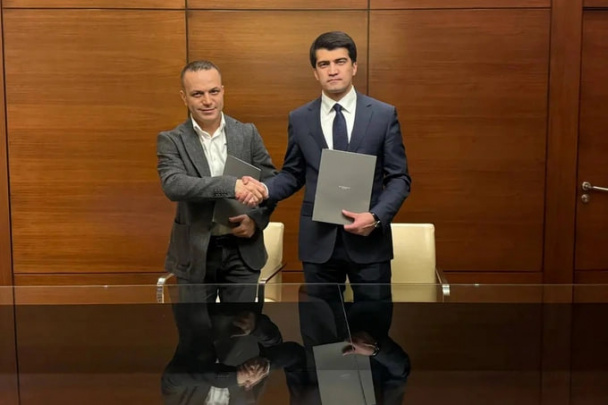How can a natural disaster in Turkey affect Uzbekistan’s economy?
An earthquake in Turkey may affect the income of Uzbek migrant workers, reduce the flow of remittances and yarn exports from this country.

Фото: Bernat Armangue/AP
Experts of the Institute of Forecasting and Macroeconomic Research (IFMR) assessed the impact of the earthquake in Turkey on the economy of Uzbekistan.
Also, the possibilities of cooperation between the countries of the Organization of Turkic States (OTS) in monitoring natural disasters and taking emergency measures were analyzed.
The impact of the earthquake in Turkey on the economy of Uzbekistan was studied in such areas as foreign trade, investments, labor migration and gross domestic product.
In 2022, Uzbekistan’s exports to Turkey ($1.5 billion) consisted mainly of raw materials such as copper, cotton, zinc, and plastics, while its imports ($1.7 billion) consisted of machinery and equipment, plastics, chemicals, pigments, and pharmaceutical products. According to the results of the analysis, the following changes in trade between the countries were identified:
• the large-scale reconstruction projects implemented in the regions affected by the earthquake may further increase the demand for imports of copper, zinc, plastic, aluminum, as well as food products from Uzbekistan;
• since Kahramanmaraş, one of the centers of the textile industry, suffered great losses from the earthquake, the current situation may have a negative impact on the export of yarn to Turkey (in 2022 – $523.3 million);
• due to the lack of coloring pigments and gases imported from Turkey, the current situation is likely to have a negative impact on the production of textile products in Uzbekistan.
Due to the earthquake in Turkey, a sharp increase in public spending and inflation may affect the income of migrant workers and reduce the flow of remittances from this country ($230 million in 2021).
The assessment of the impact of the earthquake in Turkey on the economy of Uzbekistan is based on the scenarios proposed by The Thomson Reuters Trust Principles. A reduction in Turkey’s GDP growth may lead to a decrease in GDP growth in Uzbekistan from 0.03% to 0.1%.
The 2011 earthquake in Japan was a vivid example of how the concept of “people against disaster” comes to the fore during natural disasters. In this case, people strive to unite in order to overcome the severe consequences of loss:
• Rescue teams from 23 countries were sent to Japan;
• Assistance offers were received from 163 countries and 43 international organizations;
• More than 17.5 billion yen of charitable support has been directed.
OTS countries have significant scientific and practical potential for monitoring and analyzing natural phenomena (earthquakes), as well as for timely response to them. They are:
- actively developing national institutes for the study and prevention of seismic activity;
- establishing bilateral (6 agreements) and multilateral (9 agreements) cooperation on combating and eliminating the consequences of earthquakes.
Also, the Asian Center for Natural Disaster Risk Reduction and the Center for Emergency Situations and Natural Disaster Risk Reduction operate in the territory of the Central Asian countries.
As a result of the study, the OTS countries prepared proposals for assistance to Turkey:
1. First level measures: rescuing people and providing them with the necessary first aid.
2. Further measures of mutual cooperation between OTS countries: reconstruction of the facilities and economy of the area destroyed by the earthquake.
3. Long-term actions: regular cooperation in disaster response and mitigation.
Related News

12:01
Uzbekistan’s international reserves hit record $75bn

17:38 / 02.02.2026
Migration and uneven development widen regional income divide in Uzbekistan

14:31 / 02.02.2026
Turkey’s MT Makina to invest $10 million in waste sorting projects in Samarkand

12:41 / 02.02.2026



